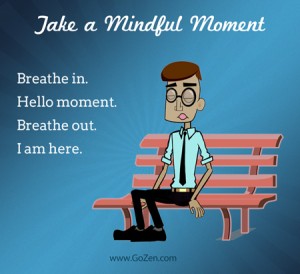A true story from a caring community member…
I don’t recall exactly when my anxiety began, but by high school what I now know to be generalized anxiety disorder was clearly rearing its ugly little head. By freshman year, I began acting out, shoplifting, skipping classes, binge eating, doing anything my immature brain could think of to feel better. My parents had no idea how to help me, and after I spent an evening hiding in a box in our basement pretending to run away, they decided to seek professional help. Luckily for me, they chose an amazing program.
It was a dedicated in-patient program designed for teens who were dealing with anxiety. In the program, I found peace. I found quiet. I found serenity. Above all else, I found tools to alleviate my anxiety that I would use for the rest of my life. I know a program like this is not right for everyone. That said, there are several strategies that almost anyone can use to help with their anxiety. Here are four of my favorites that I learned in the program:
 Guided Relaxation: You can help your child by settling them into a chair or bed and reading them a simple guided meditation script. I absolutely loved this technique. Once a week we would gather in a dark room with our pillows and go through the steps until we felt so relaxed we would almost sink into the floor. Heaven!
Guided Relaxation: You can help your child by settling them into a chair or bed and reading them a simple guided meditation script. I absolutely loved this technique. Once a week we would gather in a dark room with our pillows and go through the steps until we felt so relaxed we would almost sink into the floor. Heaven!
Yoga: Yoga and guided relaxation are similar in that they help you become very aware of your body and your breathing. When you are concentrating on your breath, whatever other little worries were in your mind just fade away. I found the most relaxing poses to be “downward facing dog” and “legs up the wall” poses.
Journaling: Keeping a diary seems like such an obvious answer to stress, and yet I often overlook it. Writing things down helps me process worries in the moment, and also helps me when I go back and read what I’ve written. I can see when I made things too big a deal, or when I didn’t act on warning signs in my life that I should have. Becoming aware of both of these things helps me make better decisions in the future. If this doesn’t convince you, check out this nifty list of 100 benefits of journaling.
Cognitive Behavioral Therapy: This one will take considerably more time and effort than the other three, however, learning the fundamental principles is worth it. In CBT, you identify thought patterns that lead to anxiety, and then you employ strategies to change those thoughts. This enables you to prevent anxiety, meltdowns, and panic attacks. This can set you free.